When Experienced Supply Chain Professionals Can’t Find Work Despite the Talent Deficit
The supply chain talent deficit is real — but what about the experienced people who can’t find a job?
This guest post comes to us from Argentus Supply Chain Recruiting, a boutique recruitment firm specializing in Supply Chain Management and Procurement.
It’s no secret that we write a lot about the Supply Chain talent deficit — the growing industry consensus about a looming shortage of talent needed to fill Supply Chain, Procurement, and Logistics jobs as those roles grow in prominence and the baby boomers retire. It’s an important issue to the field that we recruit in, and we’re interested to see how companies, educational institutions and other industry players respond as it plays out. But today we wanted to comment on an interesting side note of the whole issue:
Every time we write about the Supply Chain talent deficit, on the Argentus blog or elsewhere, we see comments from experienced professionals in the field who aren’t able to find work. We’re always sure to say that the Supply Chain talent deficit is a big-picture trend, and doesn’t mean that everyone in the field is going to be able to get a job easily. But it’s interesting that we hear from quite a few people who are having difficulty finding work, despite the fact that companies are having more difficulty hiring in the field than perhaps ever before.
A comment by 3PL executive Valerie Kucherenko on one of our recent LinkedIn Publisher posts pointed out this disconnect, and got us thinking. First of all, here’s the relevant part of the comment:
“Frankly speaking there are so many articles, including the ones by Argentus Supply Chain Recruiting, indicating a shortage of qualified candidates in the Supply Chain field that I am torn between this feeling of high demand for Supply Chain professionals and the fact that many experienced ones can not find a job. Where is the confusion coming from?”
Let’s try to answer this question.
If there is a Supply Chain talent deficit, why are so many people in the field having trouble finding work?
First of all, the talent deficit in Supply Chain isn’t just buzz. Experts throughout the industry are talking about it, but it’s also something we’re hearing about daily from our clients looking to hire in the field, and from executives we speak to. We’re on the front lines of the talent war in this industry, and we can observe it directly. So it’s not that the difficulty of hiring in Supply Chain is made up.
Of course, the trouble that certain experienced people are having looking for work isn’t made up either. So we started thinking about big-picture reasons for this disconnect, based on our experience as people who have been recruiting in Supply Chain for over a decade. Here they are:
A certain amount of churn in employment is inevitable, and even a productive fact of the economy. There’s a reason why under economists’ definitions of “full employment,” there’s still about 5% of the workforce that’s unemployed. Structural factors such as geographic shifts and technological change mean that there will always be a certain number of unemployed people, independent of other factors like economic downturns, etc. This means that no matter the demand for Supply Chain talent, there will always be a certain number of people in between jobs — people who haven’t yet found work because it takes some time to get the right opportunity in front of the right people.
But that doesn’t tell the whole story. The other thing that helps explain this disconnect is the fact that the deficit of talent isn’t, strictly speaking, a numbers game. What matters isn’t necessarily the raw number of experienced candidates vs. positions (e.g. 10,000 candidates and 50,000 positions) so much as the kind of experience companies are looking for. This is one of the things that comes up over and over again in our conversations with executives.
Supply Chain’s role in companies is expanding. Instead of just being about putting product in the right place at the right time, Supply Chain now uses data, innovation, and supplier relationships to provide companies with a strategic edge. It interfaces with sales to plan and predict demand, etc. And while the function’s scope is increasing, companies are becoming more specific in their experience requirements. For example, more companies are looking for specific category experience (like Real Estate or IT) in Procurement. It’s possible that certain experienced professionals don’t have the right experience in the most high-demand niches (such as Demand Planning, S&OP), making it harder for them to find work than if “Supply Chain” was a more monolithic category. The nature of the experience required is changing — for example companies requiring specific software experience — and much of the deficit of talent exists on this cutting edge of skills requirements, rather than for more general, classic Supply Chain roles.
The solution to this issue? We think it’s two-fold: companies need to be more open-minded in their hiring, recognizing that strong business acumen can be as important to Supply Chain success as niche experience. And on the other side, candidates need to constantly work to adapt and diversify their skillsets, expanding their knowledge to follow the niches that are in highest demand among companies.
Hopefully that sheds some light on why it can be tough for certain Supply Chain professionals to find work even though there’s a deficit of Supply Chain talent more broadly. As F. Scott Fitzgerald once said, “the test of a first-rate intelligence is the ability to hold two opposed ideas in the mind at the same time, and still retain the ability to function.”
Which is true (in our experience), but we get that it doesn’t make it any easier for those Supply Chain workers who are having trouble finding that next role! Feel free to reach out to us for help.
Related posts:
- Infographic: Examining the Demographics of the Supply Chain
- How to Hire the Right Supply Chain Employee
- 9 Career-Strengthening Moves to Make This Fall
- 5 Ways to Advance Your Supply Chain Career



